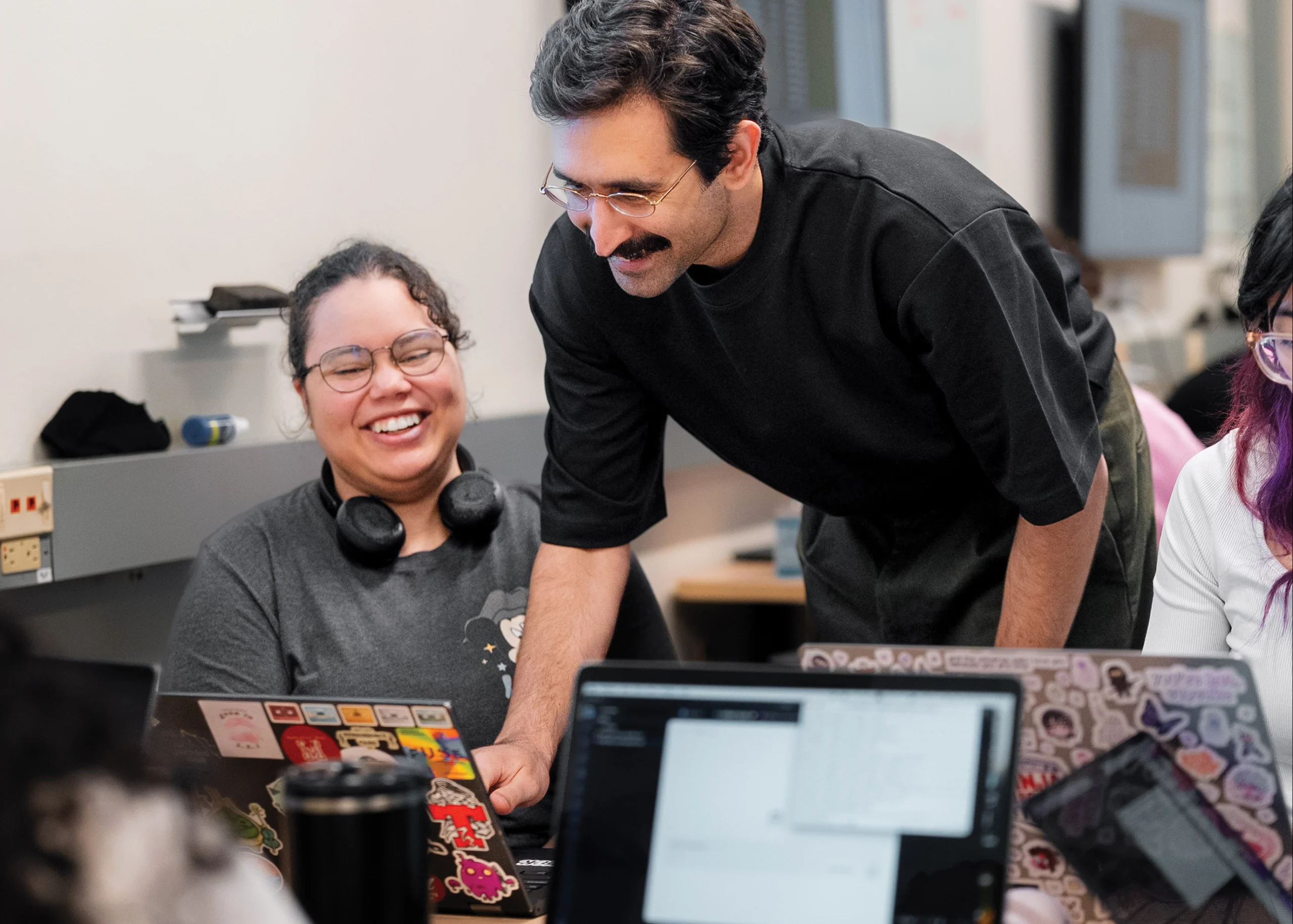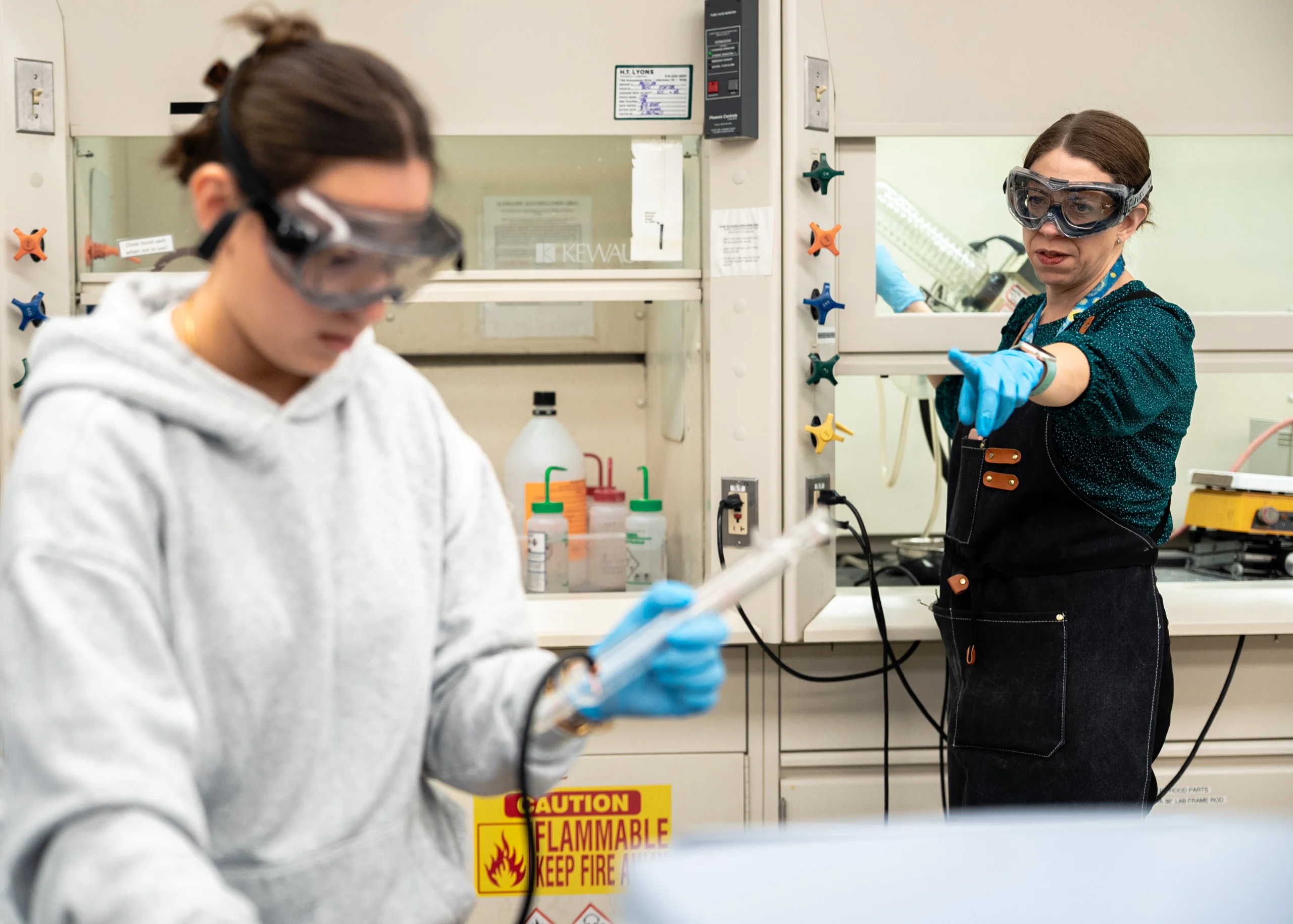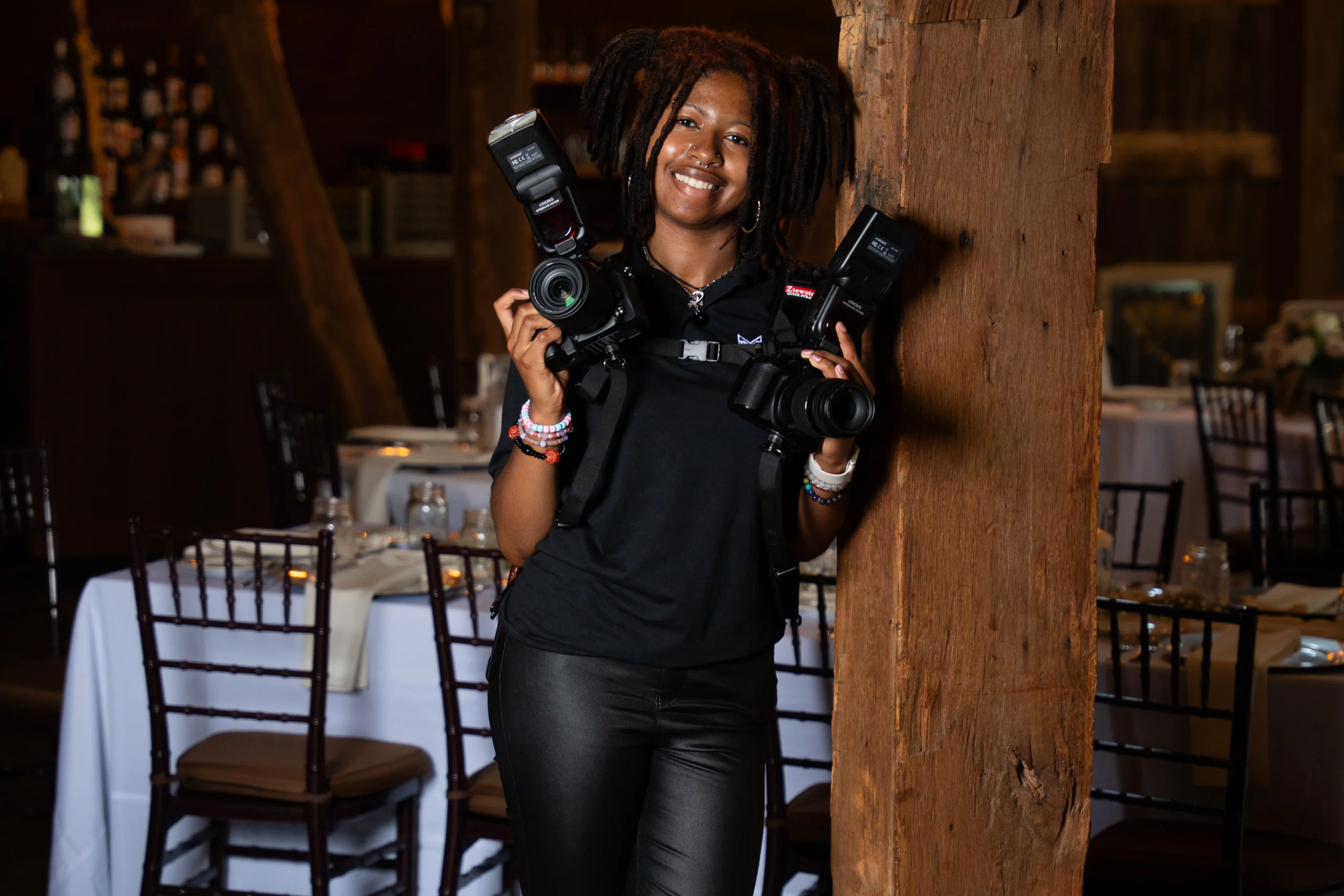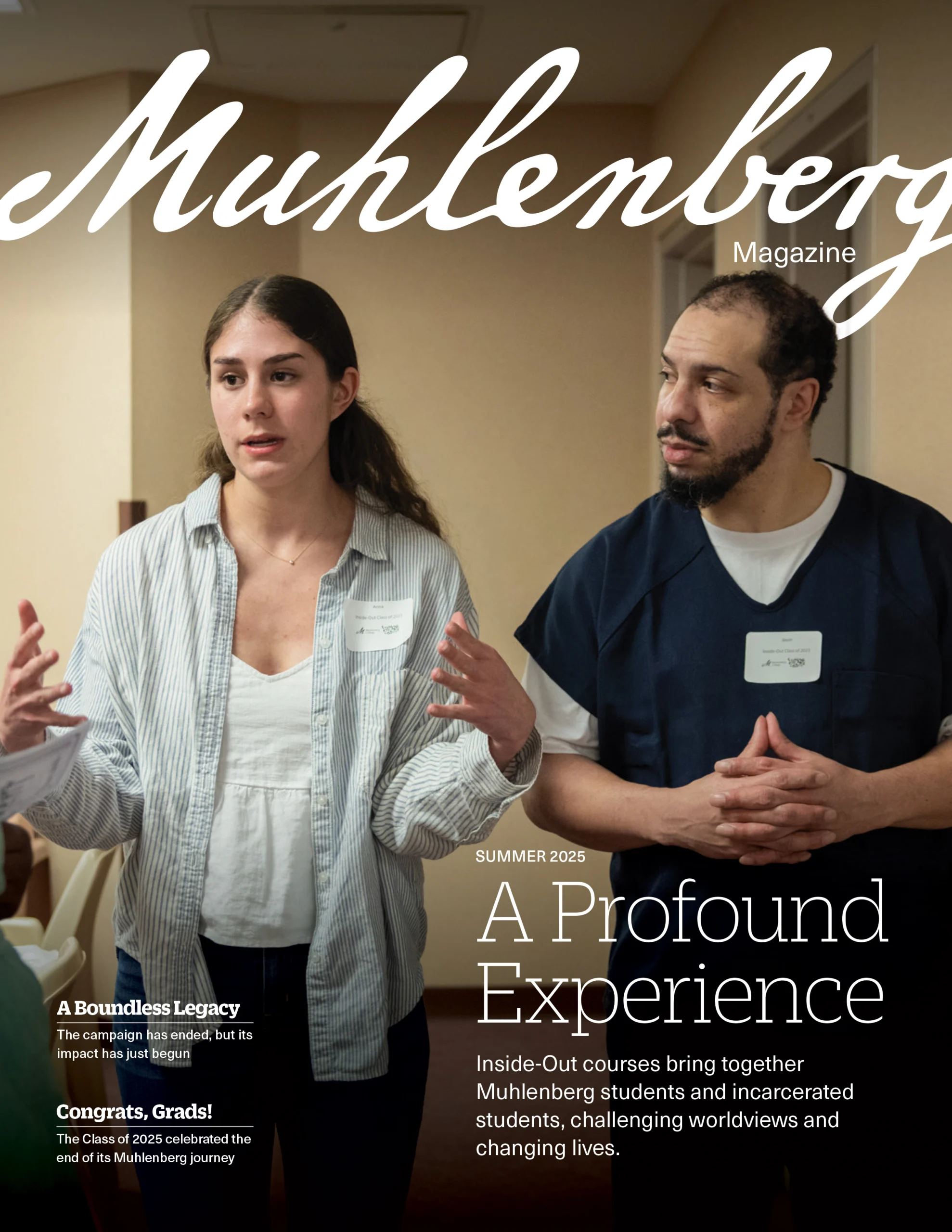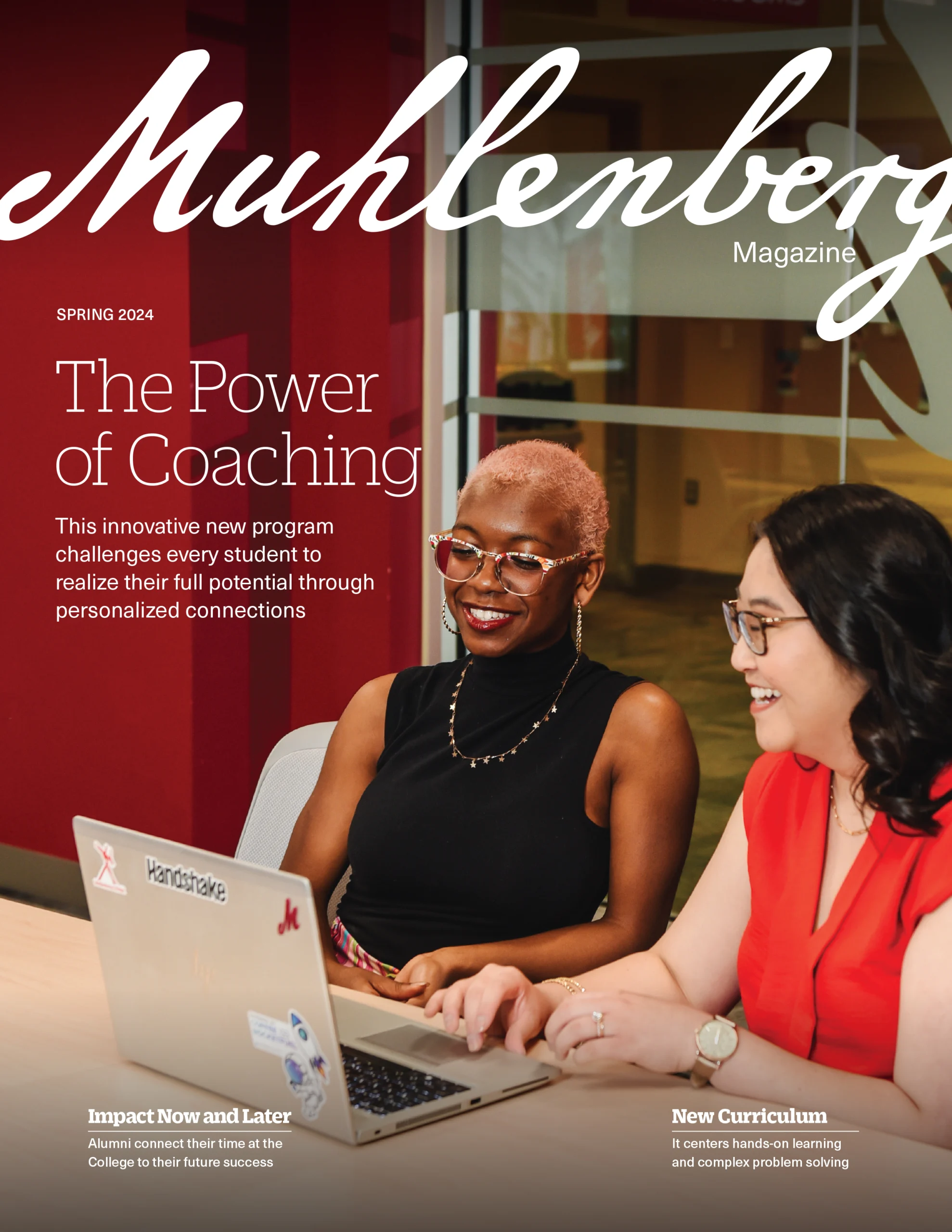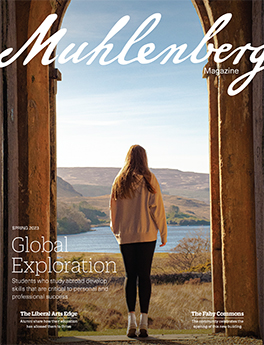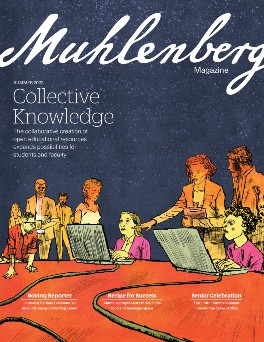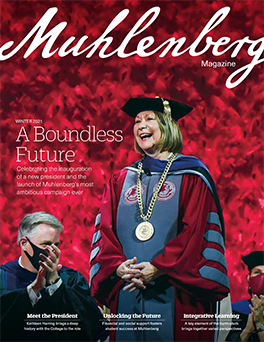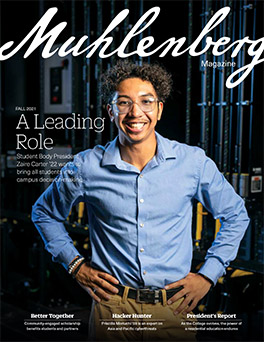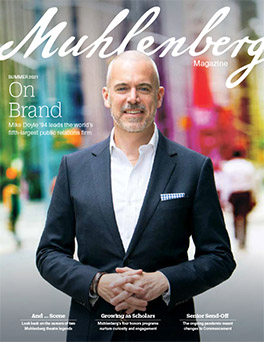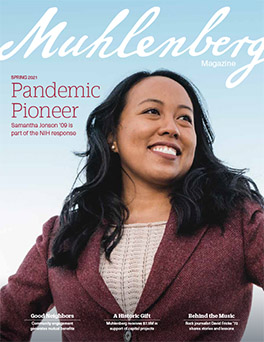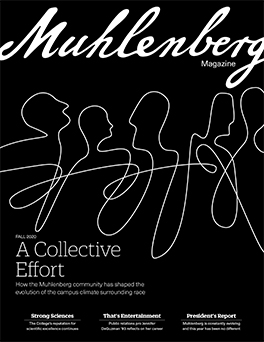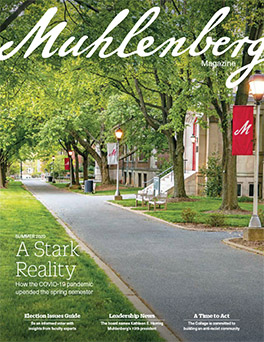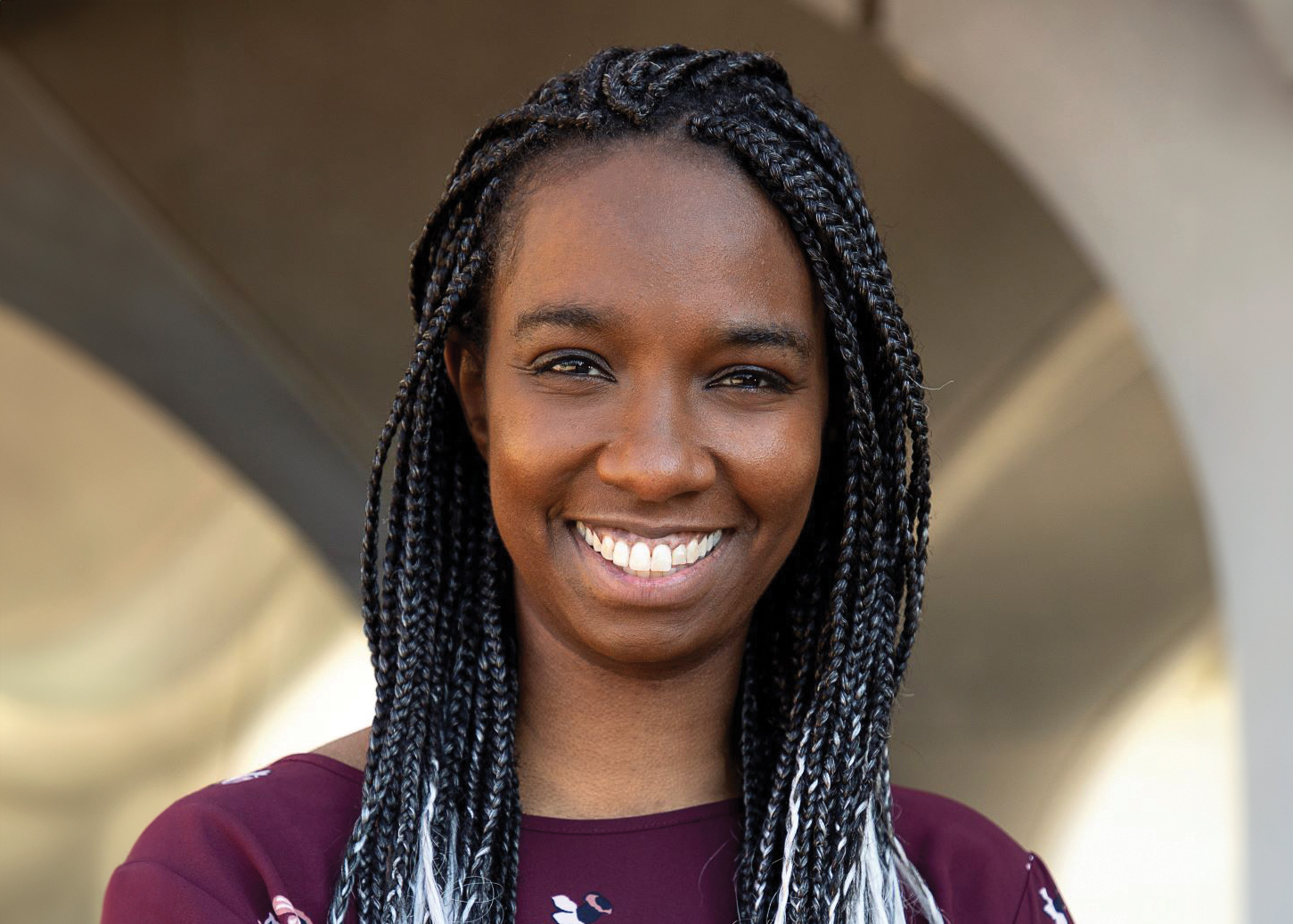
Dani Barlow ’13
As foundation director at the Stage Directors and Choreographers Foundation, Barlow develops and produces the foundation’s programming, which supports directors and choreographers, as well as its fundraising efforts.
Dani Barlow ’13 worked for the Woolly Mammoth Theatre Company in Washington, D.C. in the three years before she began pursuing a master’s in theatre management from the David Geffen School of Drama at Yale University. She returned to the company for six months after earning that degree in the spring of 2020.
Before Yale, Barlow was an executive assistant supporting the company’s managing and artistic directors. After, she was an interim associate producer, helping the company navigate the agreements and contracts with unions, actors and playwrights that would allow it to shift to digital programming due to the pandemic.
“It was kind of bizarre going back, and the world’s completely different, many things are different about the organization … but at its core, the thrilling theatrical work hasn’t changed,” says Barlow, who was a theatre and business administration double major at Muhlenberg. “Being able to join back at a completely different level was exciting to experience. It showed me that grad school helped me accomplish what I thought it would: It allowed me to find myself in a higher position within three years, where I had a lot more knowledge about the industry and skills to be a more effective team member.”
She went from that interim position to another, as interim foundation director at the Stage Directors and Choreographers Foundation. A lecturer from her Yale program reached out and asked her to consider the opportunity, which Barlow identified as a huge potential learning experience. After five months in the interim role, she applied and was selected to fill it permanently.
“Being able to explore classes in theatre and business, having that flexibility, allowed me to start to explore what business looked like in theatre while I was in school.”
“I couldn’t have fathomed a scenario in which I’d find myself in a director position this quickly,” she says. “It speaks to the power of your network, whatever your network is. You never know who might have something to offer.”
As foundation director, Barlow develops and produces the foundation’s programming, which supports directors and choreographers, as well as its fundraising efforts. Over the course of the last two years, she’s had time to reevaluate and relaunch some programs, including one meant to connect early-career directors and choreographers with education and mentorship opportunities with more experienced counterparts.
“We changed two big things about the program. One was just clarity on what the opportunities were. In the past, it was like, ‘Aren’t you lucky to be in this room?’ ‘Well, sure, but how am I set up to learn in this room?’” Barlow says, noting that she now has conversations in advance with the host directors and choreographers about exactly what their mentees can expect when they apply for a professional development opportunity . “We also increased the stipend amount significantly from what it had been in the past, because that was creating some inequities.”
Barlow is flourishing in her leadership position — last year, she was named to American Theatre’s “10 Rising Black Women+ to Watch in Theatre” list. She says that, at Muhlenberg, business courses that dealt with leadership and management were ultimately what drew her to declare her second major, and that her involvement with the Muhlenberg Theatre Association gave her an early look at what it might be like to combine her two fields of study.
“Being able to explore classes in theatre and business, having that flexibility, allowed me to start to explore what business looked like in theatre while I was in school,” Barlow says. “And being the secretary, and then the treasurer, and then the president of the theatre association allowed me to explore the things I was learning in a practical way.”


